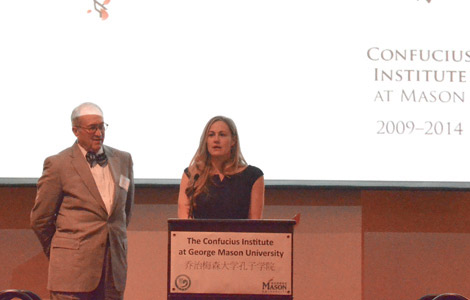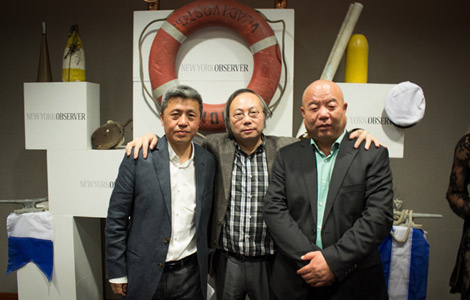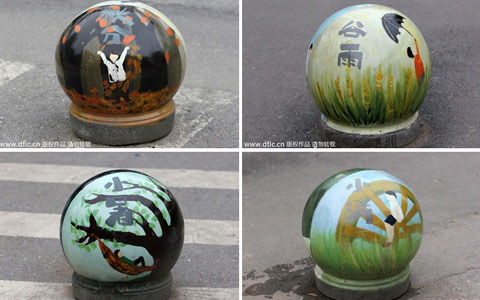Antibiotics in surface water pose 'indirect health risk'
Updated: 2014-05-09 07:20
By Wu Wencong (China Daily)
|
||||||||
High levels of antibiotics are polluting China's surface water, posing risks to the ecosystem and human health, a recent review of research has found.
According to the review, 159 types of pharmaceuticals and personal-care products have been discovered in the country's water, 68 of which are antibiotics.
The concentration and detection of antibiotics far exceeds those in Western countries, according to the review, which was conducted by six researchers from East China University of Science and Technology, Tongji University and Tsinghua University and published on the latest version of the Chinese Science Bulletin.
It said the detection frequency of some antibiotics even reached 100 percent in several main rivers, such as the Pearl River in southern China and the Huangpu River in eastern China.
Concentrations sometimes hit hundreds of nanograms per liter, while figures in developed countries are below 20 nanograms per liter.
"Antibiotics bear an ecological risk to aquatic organisms, but they do not harm humans directly," said Zhao Jindong, head of the hydrobiology institute at the Chinese Academy of Sciences. "But since they are used to kill bacteria, if they exist in the environment in a large amount, microorganisms will become resistant to the antibiotics, and when we need them to kill bacteria, they may no longer work."
He said the major reason for the excessive amount of antibiotics in the environment is domestic sewage.
Previous research showed that China is among the countries with the most serious overuse of antibiotics. Antibiotics contribute to 70 percent of the country's drug production. In Western countries, the proportion is about 30 percent.
Fu Tao, director of Tsinghua University's Environmental Protection Industry Research Center, said other sources of antibiotics in the environment include sewage discharge by pharmaceutical companies and livestock breeding.
"Antibiotics in water can only be removed by deep processing, which requires the use of ozone and bio-membranes, but most waterworks in China are not equipped with such facilities, not to mention the sewage works," said Fu.
Studies of antibiotics in China lag far behind those of Europe and the US, especially with the huge amount of production and use, the research found.
The situation may ease in the future with the new Environmental Protection Law, said Fu. Passed on April 24, the law requests the central government improve the investigation and monitoring of air, water and soil quality.
wuwencong@chinadaily.com.cn
(China Daily 05/09/2014 page2)

 Chinese enrollment for US MBAs is rising
Chinese enrollment for US MBAs is rising
 Confucius Institute marks 5th year at George Mason
Confucius Institute marks 5th year at George Mason
 Chinese artists attend NY philanthropists' event
Chinese artists attend NY philanthropists' event
 Chinese in 'orbit' over lollipops
Chinese in 'orbit' over lollipops
 Red panda gets a name, at last
Red panda gets a name, at last
 Forum trends: Made in China - cheap and inferior?
Forum trends: Made in China - cheap and inferior?
 Chinese artists are part of NY philanthropists' event
Chinese artists are part of NY philanthropists' event
 When a man loves an extremely tall woman
When a man loves an extremely tall woman
Most Viewed
Editor's Picks

|

|

|

|

|

|
Today's Top News
Top US school's offer puts youth into spotlight
Facebook gains by aiding nation's exporters: VP
China's mobile gaming market to top US and be No 1
Cheetah Mobile IPO on NYSE raises $168m
Cipher this: Chinese novel explores cryptography's labyrinth
Confucius Institute marks its fifth year at George Mason Univ
Thailand's new PM seen capable of compromises
China urges Japan to maintain regional peace
US Weekly

|

|






